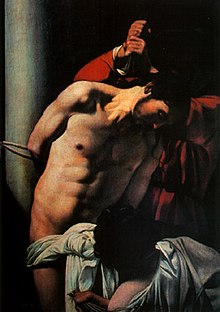Joerg Rieger
Appearance

Joerg Rieger (born 1963) is Cal Turner Chancellor’s Chair in Wesleyan Studies and Distinguished Professor of Theology in the Divinity School and Graduate Department of Religion at Vanderbilt University.
Quotes
[edit]Christ and Empire (2007)
[edit]- The Emperor cult provided an alternative way of producing order and of ordering social relationships and thus an alternative to traditional politics. Without awareness of this context, Paul's writings might indeed be seen as nonpolitical. Paul is political in a different way, however, not by challenging the administration and official politics but by resisting three of the most powerful mechanisms of control of the Roman Empire: The emperor cult, the system of patronage, and the prominent themes of the empire's rhetoric.
- p. 30
- Paul refused to enter into patronage relationships with Corinthian elites; the system of patronage is problematic because it destroys the horizontal bonds of the common people—their solidarity with each other—and ties them to the powerful and the wealthy.
- p. 30
- When Christians in a context of empire are unaware of the political implications of their faith, their Christ is likely to be co-opted by empire by default.
- p. 44
- Those who argue for a nonpolitical reading of Paul can point out that one of the first things he addresses in the beginning of the letter to the Romans is sexual perversion—usually seen as a moral rather than a political issue. Through must of its history, the church has picked up this concern and focused on morality instead of politics. Everything changes, however, if we realize that we are presented here with a false dichotomy, now as then. In Paul's world, it would have been understood that sexuality was tied up with power since one of the prerogatives of the powerful was sexual penetration. Certain homosexual activities in Paul's time could thus be considered displays of the inequality of power. Equally important, the sexual escapades of the emperor were well known to the people. In Romans 1:31 Paul reproaches rebelliousness against parents; most of his readers would have been aware of Emperor Nero's incestuous relations with his mother. Not even sexuality and politics can be separated in Paul's thinking.
- pp. 45-46
- God in Christ is a different kind of lord who is not in solidarity with the powerful but in solidarity with the lowly. ... This position—at the heart of the new world proclaimed by Paul—directly contradicts the logic of the Roman Empire.
- p. 52
